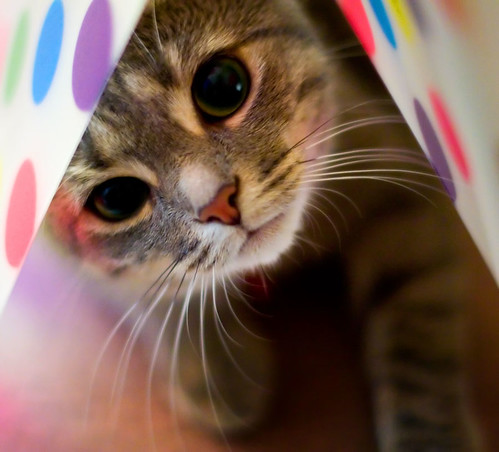
Although domestic cats (Felis silvestris catus) possess an otherwise functional sense of taste, they, unlike most mammals, do not prefer and may be unable to detect the sweetness of sugars. One possible explanation for this behavior is that cats lack the sensory system to taste sugars.
A defective gene makes your pet cat a fussy eater, according to scientists who say they cannot taste sugar or other sweet flavours. Scientists from the US and the UK published their research online in the journal PLoS Genetics.
Cat owners have long known that their pets turn up their nose at sweet tasting treats that a dog for instance, would snap up in a second.
This new research suggests the gene that codes part of the cat's sweet taste receptor, which sends back information to the moggy's brain, does not work properly.
Mammals taste sweet flavours via a receptor called T1R on their taste bud cells. It has two subunits, known as T1R2 and T1R3. Each is coded for by a separate gene.
Dr Xia Li, a molecular geneticist at the US Monell Chemical Senses Center, and colleagues say they found a change in the gene encoding the T1R2 protein in domestic cats, tigers and cheetahs.
"Other than this sweet blindness, the cat's sense of taste is normal," they write.
Co-author Dr Joseph Brand, also from Monell, says the finding has several implications.
"The non-functional sweet receptor provides a molecular explanation for why cats have no avidity for sweets," he says.
"Looking beyond this elegant explanation, one can contemplate the importance that this molecular change had on the evolution of the cat's carnivorous behaviour.
"What we still don't know is which came first: carnivorous behaviour or the loss of the T1R2 protein? With regard to the gene, is this a case of use it or lose it?"
Carnivores that eat sweet foods include dogs, bears and raccoons.
The researchers say their results are important to refine cat food that pets enjoy and fulfills their nutritional needs, and could also help to explain the impact of certain diets on humans.
"From a nutritional viewpoint, since in the wild the cat eats very little carbohydrate, it is constantly consuming a high protein diet," Brand says.
"Perhaps the cat can teach us something of the physiological and metabolic consequences of diets restricted primarily to protein."
source
No comments:
Post a Comment